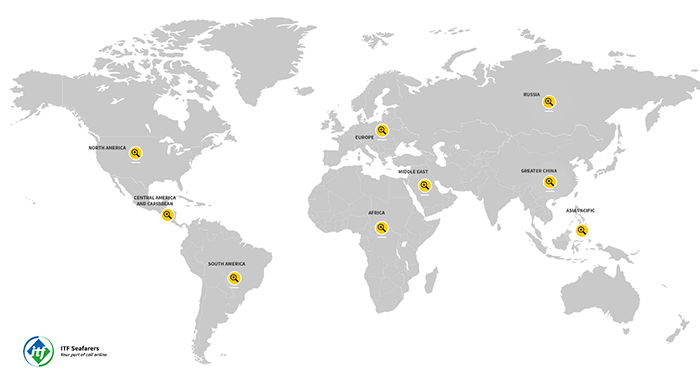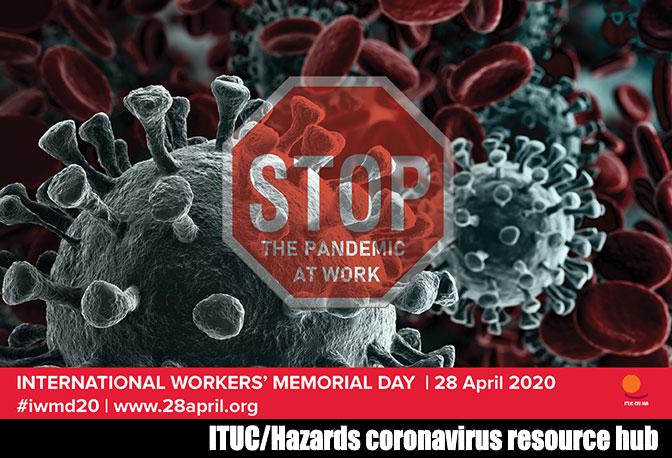ITUC action round-up on Covid-19, 7 April 2020
Prepared by Raquel Gonzalez, Director, ITUC Geneva Office.
Secretary, ILO Workers’ Group
ITUC Global Covid-19 Survey
ITUC is regularly surveying its affiliates on Covid-19. The first survey covered the period 17- 23 March 2020. In total, 109 trade unions from 86 countries took part in the survey.
Six questions were asked to monitor government responses, review economic and social policies used to respond to the pandemic, identify workers and sectors worst affected by the crisis and assess how governments and employers are responding to the crisis. The responses will be used by the ITUC and its affiliates in support of international and national advocacy and campaigning.
The second survey was published on 7 April. It covered 116 trade unions in 94 countries. The gap between regions is exposed in this second survey in terms of the responses to the pandemic. While G20 governments have committed to a record stimulus of $5 trillion, the survey shows it risks excluding emerging and developing countries. The latter are also the countries with weaker health systems and inequalities putting the health and life of millions of workers at risk.
The survey shows that the vast majority of governments (72%) are providing wage protection and income support but there are big regional differences. 41% of countries say this is not enough to cover essential costs – this is most strongly felt in the Asia-Pacific (64%) region followed by the Americas (45%).
This is why the ITUC is calling for support for a Global Fund for Universal Social Protection for the poorest countries to support health care and income support.
OSH as a fundamental right
The current pandemic shows once again the importance of OSH. This is why the ITUC will continue to campaign for including safe and healthy working conditions in the ILO’s framework of fundamental principles and rights at work (FPRWs). We will discuss this important issue at the November 2020 ILO Governing Body. At this stage I wish to recall that the Centenary Declaration we adopted in June 2019 on a tripartite basis declared that safe and healthy working conditions are fundamental to decent work. The resolution requested the Governing Boy to: “consider, as soon as possible, proposals for including safe and healthy working conditions in the ILO’s framework of FPRWs.” We strongly believe that the current pandemic shows the urgency to make this a reality and we expect a strong tripartite consensus later this year around including safe and healthy working conditions as part of FPRWs.
A new ILO instrument on biological hazards
At the November 2020 Governing Body we will also be discussing future agenda items to be placed on the Conference agenda. Four areas of OSH standards have been identified (further to the work of the Standard Review Mechanism Tripartite Working Group). We believe that in light of the current pandemic, priority should be given to the development of a Convention complemented by a Recommendation on protection against biological hazards which would be a key contribution that the ILO could make in the current pandemic context based on its rights-based mandate and tripartite structure.
ITUC/IOE Joint Statement on Covid-19
On 23 March, the International Organsation of Employers (IOE) and the ITUC issued a joint statement on Covid-19.
Both organizations called for urgent action in the following areas:
- Business continuity, income security and solidarity
- Social dialogue and role of the social partners in the control of and response to the virus
- Policy coordination and coherence at international level with the UN/WHO taking into account the need to protect employment and income through strengthening of social protection
- Strong and functioning health systems to combat the pandemic

 The ITF has launched a
The ITF has launched a 